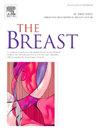Self-reported cognitive function in older breast cancer survivors after chemotherapy treatment
IF 5.7
2区 医学
Q1 OBSTETRICS & GYNECOLOGY
引用次数: 0
Abstract
Purpose
This study evaluated self-reported cognitive function in older breast cancer survivors and its association with prior chemotherapy.
Materials and methods
Breast cancer survivors aged 65-years and older, diagnosed 2012–2013, with local and regional stage disease, were identified through the linked Texas Cancer Registry-Medicare dataset. Survivors completed the Functional Assessment of Cancer Therapy-Cognitive Function (FACT-CogV3) instrument and provided demographic and clinical data. A PCI--sub-score of less than 54 was used to identify cognitive impairment. Linear regression models were used to examine the FACT-CogV3 primary score, and logistic regression models evaluated the PCI--sub-score.
Results
Of 4448 eligible survivors, 1594 (35.8 %) completed the FACT-Cog and 1065 completed all questions. The median time from diagnosis to survey completion was 68 months The median age at survey completion was 76 years. 26 % of patients had received adjuvant chemotherapy. In adjusted models, decreased FACT-Cog primary scores were associated with age 80-years and older (p<0.01 vs. age 65–69) and with depression (p < 0.01), and increased scores were associated with an education of 4-year college and above (p = 0.01).
For the PCI-subscale, 243 patients (27.9 %) reported PCI-score <54. In the adjusted models, patients who were older than 80-years were more likely to report perceived cognitive impairment (OR 3.03, vs age 65–69), as well as those with depression (OR 6.19, p < 0.01). Prior chemotherapy was not a significant predictor of PCI (OR 1.49, p = 0.06).
Conclusion
Adjuvant chemotherapy was not significantly associated with self-reported cognitive impairment in older breast cancer survivors 5–6 years after diagnosis.
化疗后老年乳腺癌幸存者自我报告的认知功能
目的:本研究评估老年乳腺癌幸存者自我报告的认知功能及其与既往化疗的关系。材料和方法通过相关的德克萨斯州癌症登记-医疗保险数据集确定65岁及以上,2012-2013年诊断为局部和区域分期的乳腺癌幸存者。幸存者完成了癌症治疗-认知功能功能评估(FACT-CogV3)工具,并提供了人口统计学和临床数据。PCI分值小于54分用于识别认知障碍。使用线性回归模型检查FACT-CogV3的主要评分,并使用逻辑回归模型评估PCI-子评分。结果4448名符合条件的幸存者中,1594名(35.8%)完成了FACT-Cog, 1065名完成了所有问题。从诊断到调查完成的中位时间为68个月,调查完成时的中位年龄为76岁。26%的患者接受了辅助化疗。在调整后的模型中,FACT-Cog初级评分下降与80岁及以上年龄(p<0.01 vs. 65-69岁)和抑郁症(p<;4年制大学及以上教育程度与得分升高相关(p = 0.01)。在pci -亚量表中,243名患者(27.9%)报告了pci评分[lt;54]。在调整后的模型中,80岁以上的患者更有可能报告知觉认知障碍(OR 3.03, vs 65-69岁),以及抑郁症患者(OR 6.19, p <;0.01)。既往化疗不是PCI的显著预测因子(OR 1.49, p = 0.06)。结论辅助化疗与老年乳腺癌患者诊断后5-6年自我报告的认知功能障碍无显著相关性。
本文章由计算机程序翻译,如有差异,请以英文原文为准。
求助全文
约1分钟内获得全文
求助全文
来源期刊

Breast
医学-妇产科学
CiteScore
8.70
自引率
2.60%
发文量
165
审稿时长
59 days
期刊介绍:
The Breast is an international, multidisciplinary journal for researchers and clinicians, which focuses on translational and clinical research for the advancement of breast cancer prevention, diagnosis and treatment of all stages.
 求助内容:
求助内容: 应助结果提醒方式:
应助结果提醒方式:


